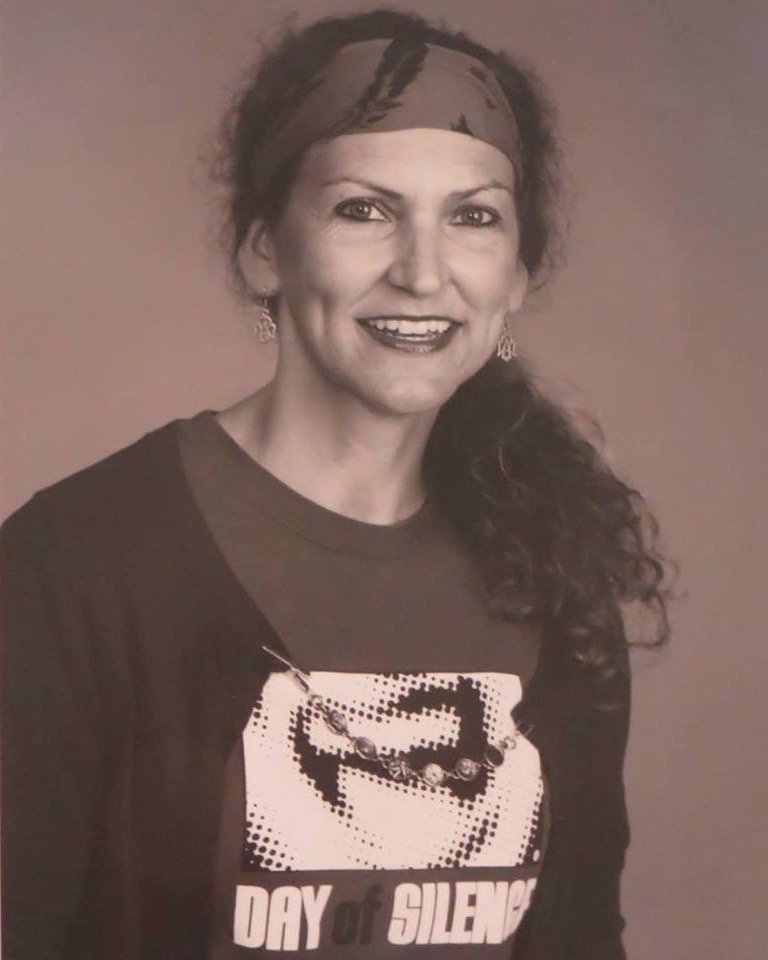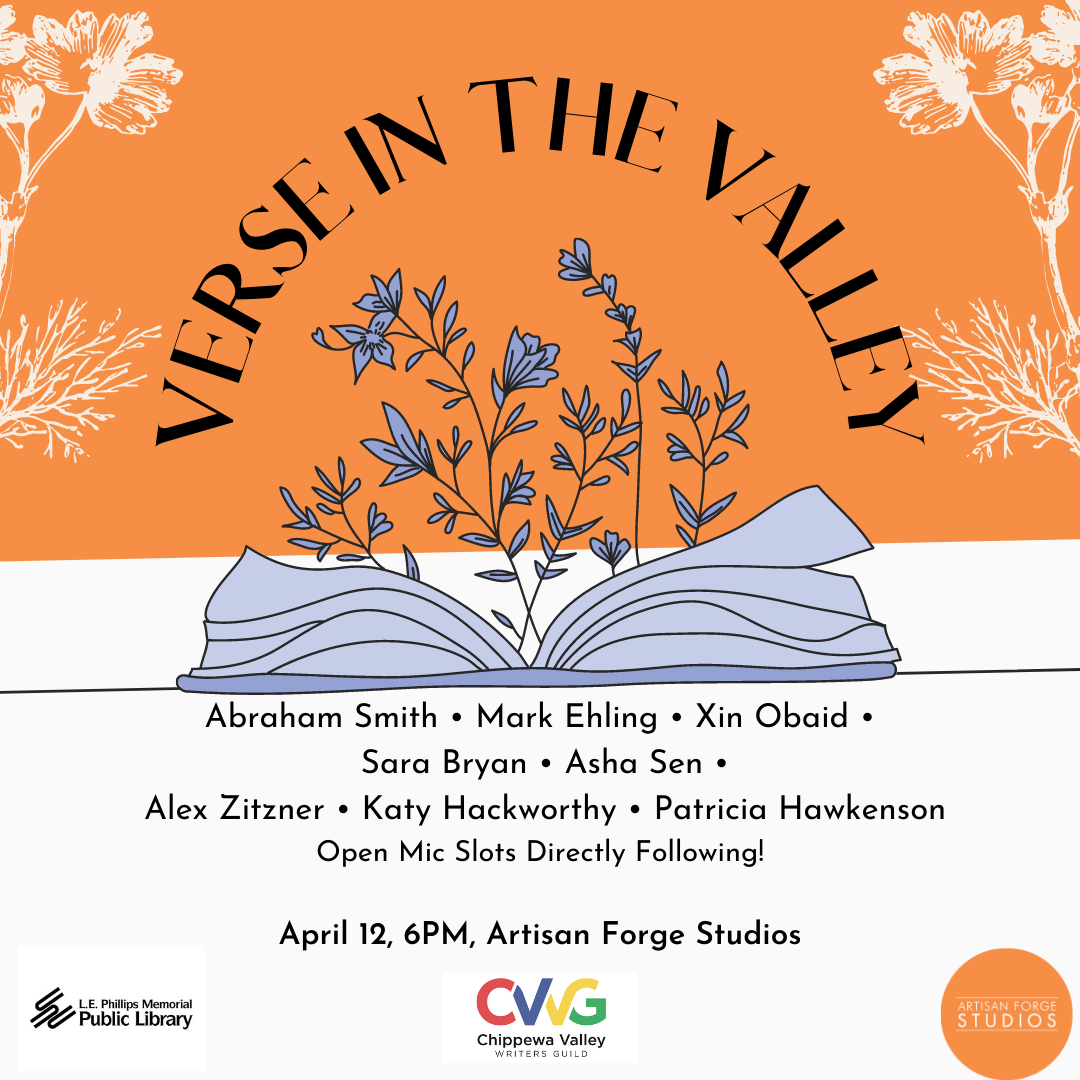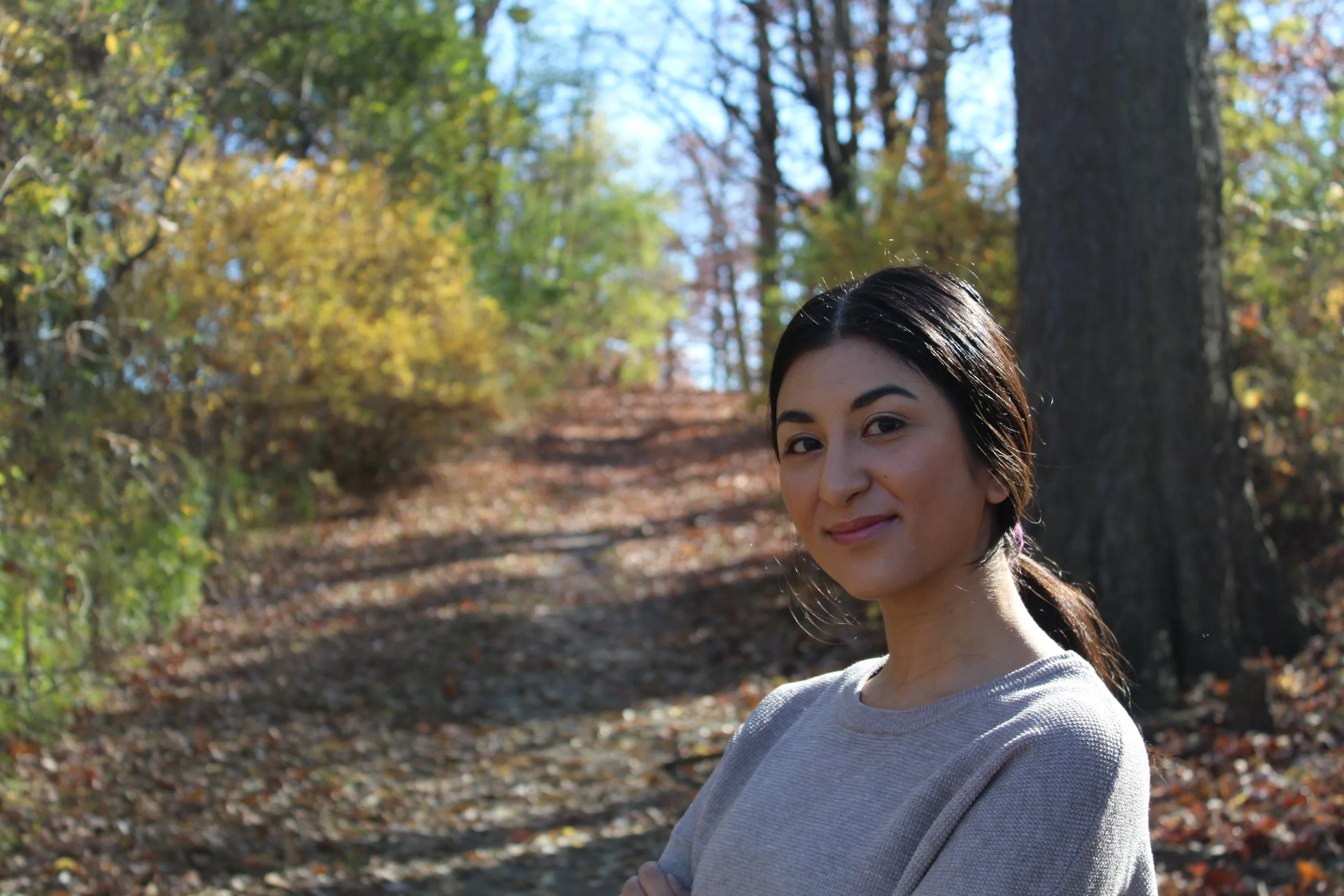Below is our Chippewa Valley Writers Guild interview with Eau Claire Writer-in-Residence Ken Szymanski, about his new book Sit Down and Stay Awhile: My Aunt Lil, a Small-Town Bar, and a Lifetime of Polkas. Enjoy!
CVWG: First of all, for your book release (July 21 at Stone’s Throw in Eau Claire), you’re having a polka band and “polka” is in the title of your book. Why does polka music play such an important role in both your book and the book release party?
“And in writing the book, I realized how much polka music fit Lil’s personality. Polka music puts everyone in a good mood. There are no sad polka songs. And polka music brings people together. And Lil made a career out of creating good times and bringing people together at her bar.”
Ken Szymanski: As I wrote the book, I noticed how polka music was something that kept coming up, all throughout my aunt Lil’s life. With her husband Leon, she ran Leon & Lil’s bar in Thorp for 52 years, and they often had live polka bands on the weekends. But it was more than just that. She grew up listening to polkas, and she listens and sings along with polkas to this day. And in writing the book, I realized how much polka music fit Lil’s personality. Polka music puts everyone in a good mood. There are no sad polka songs. And polka music brings people together. And Lil made a career out of creating good times and bringing people together at her bar. They came together over food, over drinks, over conversation, over dice games, and over polka music. And no one polkas alone. The music literally brings people together. People polka with their parents and siblings and neighbors—not just their spouses, so the music kind of acts like a community builder, in a way.
CVWG: Why did you choose to write a book about Lil?
KS: It was actually Lil’s idea. I’ve known Lil as an incredibly kind and generous person my whole life, but it wasn’t until she was staying at Sacred Heart Hospital in Eau Claire recovering from surgery back in 2019 that I had a chance to have daily conversations. It was right on my way home from work. And she was just as entertaining as an elderly person in a hospital bed as she was as a younger person behind the bar. And I always looked forward to the next visit.
I had written my grandfather’s life story, and hearing her dad’s story I think may have planted the seed in her head. And he died before I was born, so that made the project a lot more difficult. So when Lil mentioned that she had always wanted to write a book about her life, it seemed easy. She’s a great storyteller with a fascinating small-town life. And now that the book is done, I can’t believe I didn’t think of this 20 years ago. But sometimes the things and people in your own life are difficult to imagine as writing material. But when you step back, the people in your family are more fascinating than you realize. And that’s definitely been the case with Lil. I knew she was a special person, but not until the interviews did I realize the impact she made on her community by the way she treated each and every person who walked through those tavern doors. And it didn’t matter if you were a regular or a first-time customer. She didn’t seem to have an “in-crowd” or an “inner circle.” And valuing every single person wasn’t some calculated business move. The book shows how she was like that before and after her time in the bar.
CVWG: It sounds like you’ve really enjoyed this process. Is this idea of writing about elderly relatives something you’d recommend to others?
KS: Definitely. And you don’t have to know everything about them to do it. You can use this process as a way to get to know your relatives. Their stories are worth sharing and preserving. You don’t have to make a book about it, but you can. It could also be a few pages that’s just shared with the family. It’s really about the process. It’s about asking the questions and hearing the stories and bringing back the memories and, really, letting your elders know that they’re valued, and that their stories are important. And when you show interest, sometimes people really open up, and you get to know them in a whole new way.
CVWG: How would you advise getting started?
KS: Tell them that you want to start a project of learning more about your family history. See if they’ll let you record an interview. Come up with a list of questions, but also just see where it goes. Often, the more people talk, the more they start to remember. And that initial conversation often gets them thinking for a few days, and more memories start popping up…so do some follow-up sessions. Then use that information to interview other relatives and jog their memories. Then take those back to the original person and see if that helps them remember more.
The tough part is figuring out how to organize that into something. The way it worked for me was I wrote a long rough draft and showed it to a friend who had never been to Thorp, never met Lil, to get an outsider perspective. He pointed out things that were confusing, things that were repetitive, and things that were underdeveloped. That was super helpful. After making those improvements, I found a new person to show it to and saw how this improved version looked to fresh eyes. Then it was a long process of sanding it down until it was as smooth as possible. And it’s important not to try to tell everything. You’d never finish the project, and it’d collapse under its own weight if you did. I tried to present the best of my findings—just the best quotes and the best examples to represent their life.
CVWG: What was your aunt’s reaction when she saw the final product?
KS: She was quite overwhelmed. She was so happy. And I remember she said, “I wish Leon could see this.” And she’s really gotten a kick out of the publicity. She’s always been a celebrity in Thorp, and at age 96, it shows that she still has a few tricks up her sleeve.
Book Release Polka Party at Stone’s Throw in Eau Claire
Thursday, July 21 at 7:00
$3 Cover Charge
After a book talk and reading, enjoy live polka music from the band Klezmazel. Books will be available for purchase, and the dance floor will be open.
Sit Down and Stay Awhile…or Don’t
Saturday July 23 at Volume One Local Store, 11:30-8:30
Free
In this unusual marathon reading, Szymanski will imitate NPR’s “Chapter a Day,” but with a chapter every half hour. Starting at 11:30AM, Szymanski will read the first chapter from the book. Then every half hour, he will read the next chapter until he finishes the book at 8:30 that night. In between the book’s 19 chapters, he will be available to sign books, answer questions, and talk about writing. Like a street musician or corner preacher, performances will go on whether anyone is listening or not.
A Visit With Lil
Thorp Area Historical Society
Thorp, WI
Friday, August 5
Anytime From 2-4
Free
Visit with Lil Kaczmarek at the Thorp Area Historical Society and hear about her new book, Sit Down and Stay Awhile. The book will take you back to when polka music filled the bars and Lil kept the party hopping for decades with generosity and charm. See Leon & Lil's memorabilia, hear small parts of the book read by author Ken Szymanski, and take home a copy signed by Lil. The event is free (donations accepted).
In addition to the events, the book will be available at the Volume One Local Store, Nolchek’s Meats in Thorp, Marieke Gouda cheese shop in Thorp, and Thorp Area Historical Society starting July 23. Each book purchase comes with a limit-edition Leon & Lil’s bar coaster, while supplies last.











































